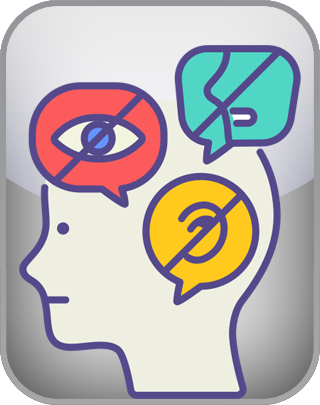Social Interaction Anxiety Test (SIAT)
The Social Interaction Anxiety Test, derived from the Social Interaction Anxiety Scale (SIAS) developed by R. Mattick and J. Clark serves as a valuable tool for assessing personality traits related to social interaction anxiety. This instrument is designed to identify behavioral and emotional patterns that may influence interpersonal interactions, emotional well-being, and daily functioning. Rather than focusing on diagnostic labels, the test aims to facilitate self-assessment and provide insights into the underlying factors shaping individual experiences. It offers a structured approach to understanding the dynamics of social behavior and its impact on various aspects of life.
To take the test, enter your input below.
Question 1 of 20
I am at ease meeting people at parties, etc.
| Disagree | Agree |
NEXT
The IDRlabs Social Interaction Anxiety Test was developed by IDRlabs, based on the Social Interaction Anxiety Test (SIAT).
Social interaction anxiety is characterized by a persistent fear or discomfort during interpersonal interactions. This anxiety often arises from the fear of being judged, criticized, or rejected in social settings, making even routine conversations or encounters daunting. People with this condition frequently overanalyze their actions and words, fearing they might appear awkward or inappropriate, which heightens their anxiety and limits their ability to engage with others confidently.
The fear of negative evaluation is a core element of social interaction anxiety. Individuals may avoid situations where they anticipate scrutiny or judgment, such as introducing themselves, making small talk, or participating in group activities. This avoidance behavior can lead to missed opportunities for forming connections, further isolating the individual and exacerbating feelings of loneliness and inadequacy.
Physical symptoms often accompany the anxiety experienced during social interactions. These can include a racing heart, trembling, sweating, or blushing, which may intensify the fear of being visibly anxious and judged by others. Such symptoms create a cycle where the fear of physical reactions fuels social anxiety, and vice versa, making it difficult for individuals to break free from their discomfort.
Social interaction anxiety can significantly impact a person’s personal and professional life. It may lead to challenges in forming meaningful relationships, advancing in a career, or participating in social and community activities. The avoidance of social situations can limit personal growth and contribute to feelings of dissatisfaction or low self-esteem, further deepening the anxiety.
Managing social interaction anxiety often involves strategies such as cognitive-behavioral therapy (CBT), which helps individuals identify and challenge negative thoughts about social interactions. Exposure therapy, where individuals gradually face feared situations, and mindfulness techniques to reduce overthinking can also be effective. With appropriate support and interventions, individuals can learn to navigate social situations more comfortably and build confidence in their interpersonal skills.
As the publishers of this free test, which allows you to screen yourself for social interaction anxiety, we strived to make the test as reliable and valid as possible by subjecting this test to statistical controls and validation. However, free online quizzes such as the present test do not provide professional assessments or recommendations of any kind; the test is provided entirely “as-is.” For more information about any of our online tests and quizzes, please consult our Terms of Service.

